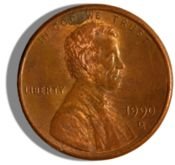But without a health insurance reform bill of any kind passing, Congressional Democrats will find themselves in an electoral jam next November.
On the generic Congressional ballot Democrats lead Republicans 46-38. However, when respondents were asked how they’d vote if a health care bill with a public option was passed, that margin tightened to a 46-41 Democratic lead. The political implications of that though are not nearly as bad as if no health care bill is passed. Asked how they would vote next year under that scenario the generic ballot is tied 40-40 between the two parties.Marshall argues that what's left of the public option at this point in the process is so anemic that perhaps not much really would be lost in jettisoning the public option to secure passage of the overall bill. Still, there are significant amounts of Representatives (many in the "Progressive Caucus") who claim that a bill without a public option means that they will not vote "Aye" after Conference Committee. These are mostly members of Congress representing super-safe Democratic districts, and would very likely not lose their seats due to no bill being passed. They are well leveraged. A bill without a public option could very well be in danger of not passing as one with a public option, however anemic.
The Democrats are in a position where passage of a bill is imperative, and it appears to me that if the Progressive Caucus assertively hold their ground then that bill will include a public option. But if four conservative Democratic senators continue to claim that they will filibuster a Senate bill with a public option, then where else can the Senate go but to budget reconciliation? Senatorial courtesies be damned. The Democrats need a bill passed and signed into law or they are assuredly in for discourtesies from the electorate.




No comments:
Post a Comment